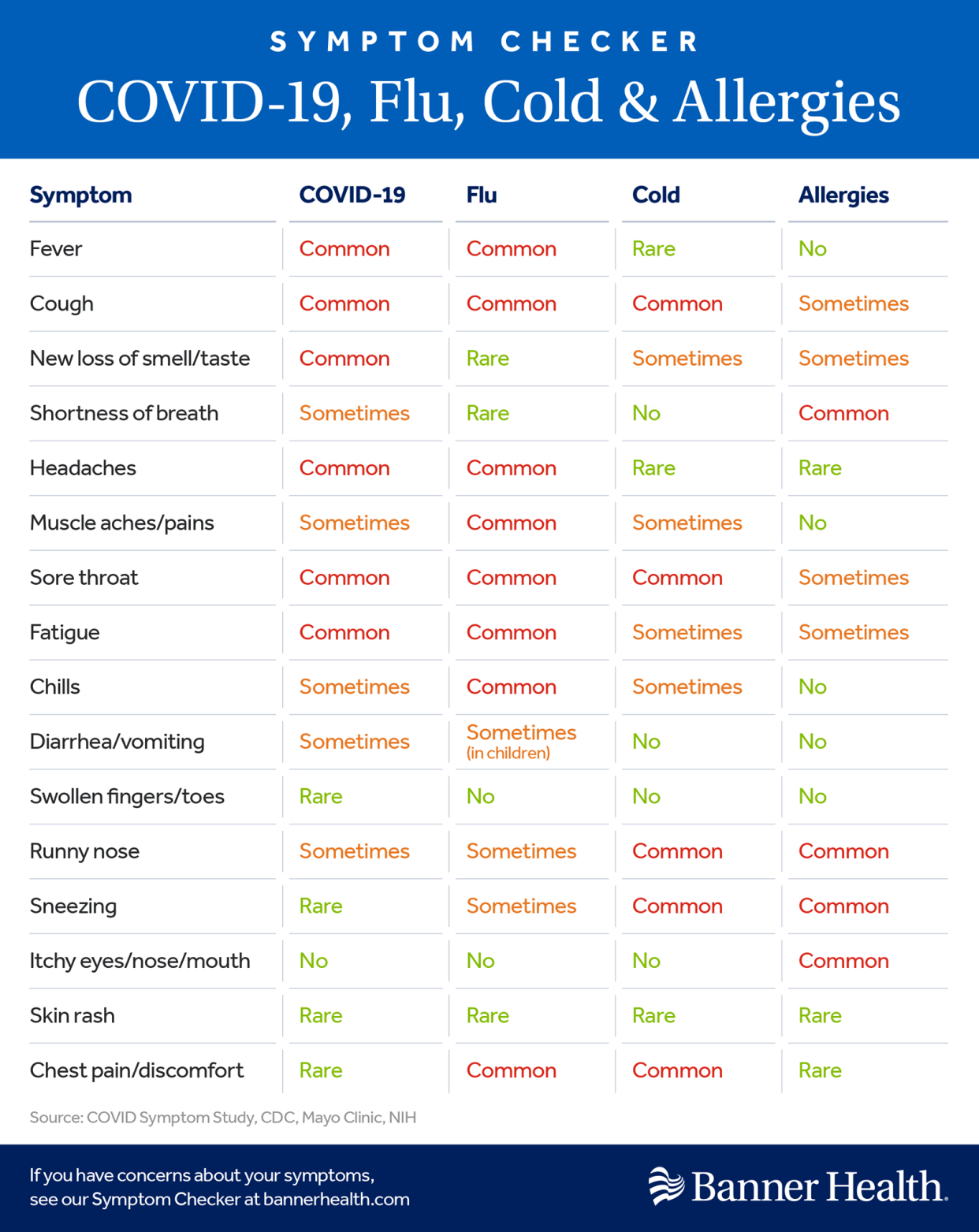Your COVID-19 symptoms might actually be the flu: Arizona is in the midst of a late spike

While a cough, fever and fatigue are often signs of COVID-19, Arizonans experiencing those symptoms right now may actually have the flu.
Arizona is in the midst of an unusually late spike in flu cases, and it's not too late to get a flu vaccine, Carla Berg, Deputy Director for Public Health Services at the Arizona Department of Health Services, said in a May 19 blog post.
The increase in flu cases comes at a time when COVID-19 cases have also been rising in Arizona.
Dr. Robert Porter, an emergency medicine physician at Banner Ironwood Medical Center, told The Arizona Republic that Banner Health is seeing an increase in patients with the flu, many of whom believe they have COVID-19.
If you have flu-like symptoms and are worried it could be COVID-19, Porter suggests taking an at-home COVID-19 test, as the symptoms are quite similar and there isn't a reliable way to distinguish between them based on symptoms alone. However, he said the home care for both illnesses is largely the same.
“Unless you get extremely sick and have difficulty breathing and are not able to keep fluids down, then most of the stuff is symptom relief at home,” Porter said.
“If you feel dehydrated or are getting more sick and not able to drink and eat, then those are reasons to come in and get evaluated or go see your primary care physician. Depending on how sick you are, you can go to your primary doctor, urgent care or an emergency room.”
Flu vaccines expire at the end of June
Anyone who has not had the vaccine needs to hurry up because supplies are expiring, Chandler family physician Dr. Andrew Carroll told The Republic.
Many doctors’ offices may no longer have the flu vaccine this late in the season, he said.
State health department spokesperson Steve Elliott told The Republic in an email that the vaccine will expire at the end of June, which means there is still time for people to benefit from it. People should check pharmacies or other providers if their doctor doesn’t have it, he said. However, it is better for people to get the flu vaccine at the start of each flu season, Elliott wrote.
For anyone who can't find a flu vaccine, Carroll advises taking other precautions like wearing an N95 or KN95 mask indoors to avoid both the flu and COVID-19, rates of which have been increasing in recent weeks.
"If you wash your hands, hand sanitize and you mask, you're providing a decent layer of protection, and that's the best thing to do at this time," he said. "If you are going to the grocery store or a sports event or an airplane, you really should be wearing a mask."
A reduction in mask wearing could be causing flu cases to increase
Flu cases usually spike around December and January, but Arizona is experiencing an unusual second spike, ADHS data shows, though overall flu cases have been lower than usual this season. A similar trend is happening in other states, Berg’s post says.
A reduction in COVID-19 mitigation measures such as mask-wearing and social distancing may be one reason for the recent uptick in flu cases, Berg wrote.
“COVID-19 and influenza share many of the same signs and symptoms,” Berg wrote. “Both can result in severe illness and complications, especially for older adults, people with certain underlying medical conditions, and pregnant women.”
Getting vaccinated is the best way to protect against the flu, Berg wrote. In addition, she wrote, she advises other ways to protect oneself:
Wash your hands often with soap and water for at least 20 seconds. If soap and water are not available, use an alcohol-based hand sanitizer.
Avoid touching your eyes, mouth, and nose with unwashed hands.
Cover your cough or sneeze with a tissue or your sleeve, and immediately throw the tissue in the trash.
Avoid close contact with people who are sick in your home. Keep 6 feet of distance between yourself and others outside of your home.
Stay at home when you are sick.
Republic reporter Stephanie Innes contributed to this article.
Christina van Waasbergen is a journalism student at Northwestern University and an intern covering health care at The Arizona Republic. Reach her at cvanwaasbergen@arizonarepublic.com.
This article originally appeared on Arizona Republic: Arizonans with COVID-19 symptoms may actually have the flu

